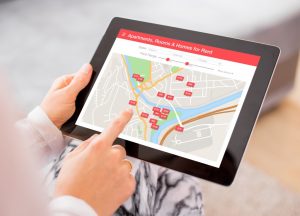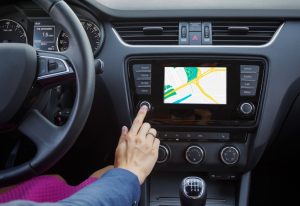 Can you imagine a world without smartphones and other GPS-enabled devices? Probably not, especially now that most of us rely on these products to fulfill our daily tasks and live a better life. For example, our smartphones use GPS technology to determine our location, look for a particular place on Earth, and book a ride through Uber and other mobile applications.
Can you imagine a world without smartphones and other GPS-enabled devices? Probably not, especially now that most of us rely on these products to fulfill our daily tasks and live a better life. For example, our smartphones use GPS technology to determine our location, look for a particular place on Earth, and book a ride through Uber and other mobile applications.
Trucking companies use GPS devices to track their fleet, so they can easily monitor the delivery of goods and dispatch drivers whenever necessary. That ensures that your recent order via your favorite online shop will reach your doorstep on time. Have you ever tried sharing your location with your friends or loved ones who are waiting for you or are about to meet you? GPS technology makes that possible. Simply put, this technology makes our lives easier.
If you are a manufacturer of GPS-enabled devices, you need to ensure that the items you put into the market perform excellently. They must be reliable and efficient so that the users will get the most of their functionalities and features. That’s when product testing comes in.
A testing procedure is designed to determine a product’s performance. Before releasing a GPS/GNSS equipment on the market, manufacturers must test it to determine its reliability in real-world situations. It is easy to disclose that a product can do this or last for a certain number of years. The challenging part is to prove these claims. The product should perform as advertised.
A multi-element GPS simulator is a good example of a reliable product-testing tool.

The ever-widening usage of global positioning technology
Global positioning system (GPS) equipment has evolved from solely from military applications to many civic and consumer purposes. Almost all types of electrical devices feature real-time location services, and critical information is provided by the global positioning satellite system. Because it is easy to use and versatile, developers keep coming up with new applications.
The type of equipment that uses the technology will be subjected to obstruction and interference during operation, and its service life depends on its ability to overcome challenges and function as expected.
Using a simulator for testing
When you build a new device using global positioning technology that fills a need in modern life, you must ensure success for your investment. Testing paves the way for the creation of a reliable system. A simulator provides a radio signal similar to that of a satellite. There are three types of simulators, namely full constellation, GPS engine, and GPS replay. A full constellation simulator generates artificial signals in real time, provides a trajectory file, offers replayable data, and allows offline processing. The other two types have a very specific purpose as well.
Choosing a multi-element tool for testing
There was a time when GPS testing was costly and time-consuming. The availability of new technologies allows for testing in various conditions and for different real-world applications. A multi-element simulator is an ideal choice if you want to launch the product as soon as possible. If you are in a budget, you can use the device for real-world simulation without leaving the laboratory. If you are keeping the overhead cost as low as possible, this type of device is the answer to your prayers.
Creating a device that uses GPS technology requires a great amount of time and resources. Since testing is necessary, find the most cost-effective and versatile tool available on the market today.